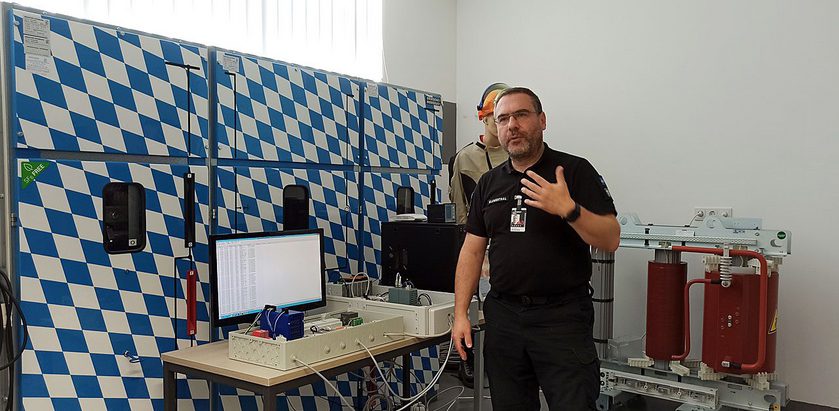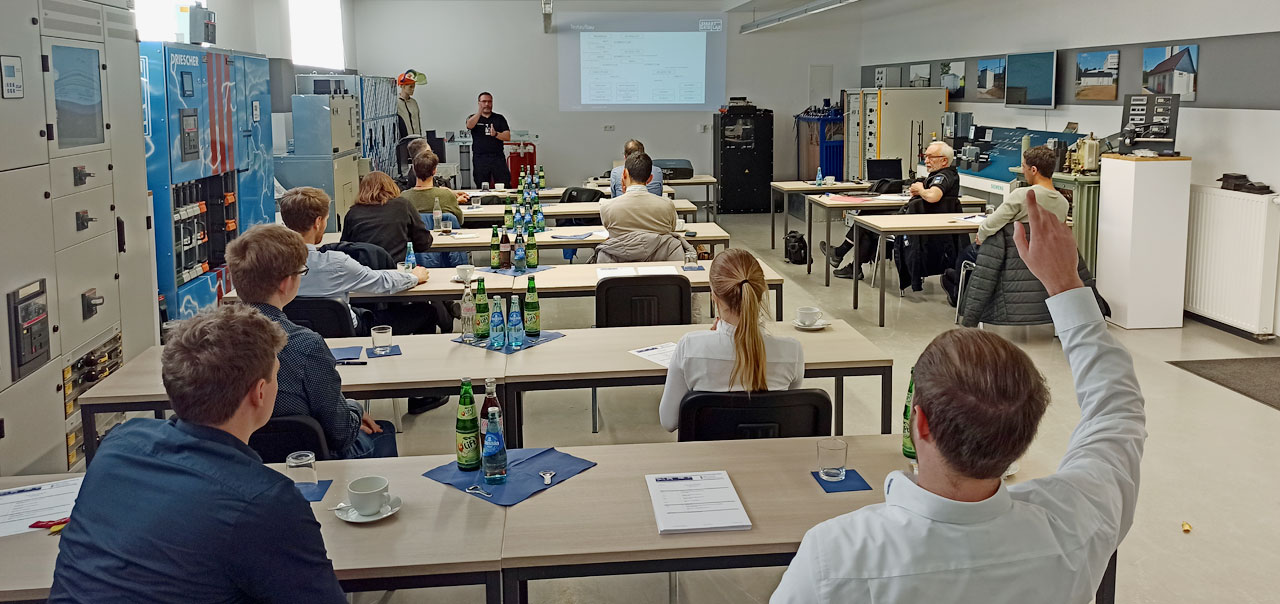Limiting risks to intelligent power grids (smart grids) from cyber attacks is a part of the project which is funded by the European Regional Development Fund (EFRE). This aspect are being addressed by the multilevel security manufacturer QGroup GmbH.
In his presentation, Thomas Blumenthal, Managing Director of the QGroup, first addressed the motivation behind attacks. In most cases it is monetary reasons that are decisive, but there are also politically motivated attacks, such as the one against the Ukrainian power supply system on 23 December 2015. He provided an insight into the diverse means of carrying out attacks and gave the participants a vision of the potential impact and ramifications. “The collapse of a local power grid could well spread quickly to connected networks and cause them to fail as well. It will not be possible to refuel or cool in the affected areas. There would no longer be electric light, no running water, and no cash out of ATM’s. After just a few days, hospitals would no longer have an emergency power supply and at some point, nuclear power stations will also run out of diesel for cooling their fuel rods,” said Blumenthal.
He reported on a variety of infrastructure “Hacks” and pointed out where we need to learn from the past to protect today’s increasingly complex infrastructures. Our power grid has so far been largely spared from hacker attacks because potential attackers are not yet familiar enough with the devices involved (smart meters/security devices) and their interaction with the grid to manipulate them – that is now changing. QGroup will be providing the project partners with information in regular security meetings.
Within the framework of the Smart Grid LAB Hessen real-world laboratory, the smart grid is to be examined on a holistic basis from a range of perspectives. All energy sources and consumers are simulations of real-world examples. This allows challenging grid situations to be simulated without danger.
Findings from the Smart Grid LAB Hessen are also to be utilised in the KRITEX project. Here, QGroup, Kassel University and Städtische Werke Netz + Service GmbH are investigating how power grids can be digitalised and operated flexibly with high resilience.

